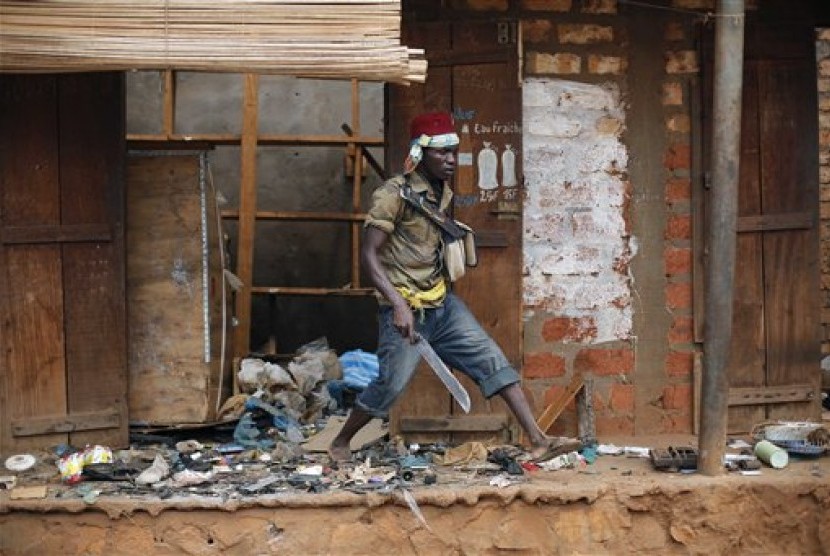REPUBLIKA.CO.ID, BANGUI - The UN's top human rights official warned Thursday that the hatred between Christian and Muslim communities in Central African Republic was "at a terrifying level" and a state of near-anarchy means even those carrying bloody machetes and holding severed body parts in their hands are not arrested.
Navi Pillay, UN High Commissioner for Human Rights, described the situation as "almost total impunity" with "no justice, no law and order apart from that provided by foreign troops." Some 6,000 African peacekeepers and 2,000 French troops are working to stabilize the country, though have a limited presence outside the capital of Bangui.
"I cannot help thinking that if the Central African Republic were not a poor country hidden away in the heart of Africa, the terrible events that have taken place — and continue to take place — would have stimulated a far stronger and more dynamic reaction by the outside world," Pillay said at a news conference in Bangui wrapping up her three-day visit.
"How many more children have to be decapitated, how many more women and girls will be raped, how many more acts of cannibalism must there be, before we really sit up and pay attention?"
Central African Republic, long one of the world's poorest and most unstable countries, descended into chaos one year ago when an alliance of mostly Muslim rebel groups in the country's north overthrew Francois Bozize, the president of a decade. The rule of the Muslim rebels known collectively as Seleka was marked by atrocities, including tying together victims and throwing them off bridges into rivers to drown or be eaten by crocodiles.
Even before the rebel leader-turned-president stepped down from power in January amid mounting international pressure, France had warned of the possibility of a genocide. Leading human rights groups also feared that the country's Muslim minority could be attacked in retaliation.
Indeed, hatred toward the Seleka was transposed on to ordinary Muslims accused of collaborating with them. Mobs have tortured, killed and dismembered Muslim victims, sometimes in the presence of international peacekeepers. Tens of thousands of Muslims fled for their lives in convoys to neighboring Chad, the predominantly Muslim country to the north.
"Civil society organizations told me they rang the alarm bells long before the crisis turned into a calamity, but nobody listened," Pillay said. "Despite some improvements on the security front, the alarm bells are still ringing. If we get it wrong again, by failing to support this country wholeheartedly in its time of need, we risk decades of instability and the creation of a new and fertile breeding ground for religious extremism, not just in CAR but in the wider region."


